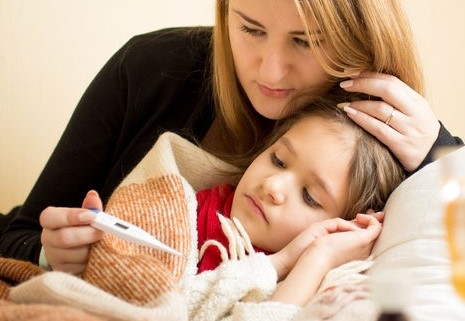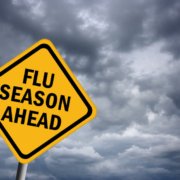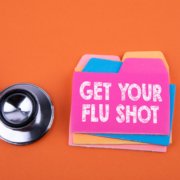Why Get Your Child a Flu Shot by Dr. Amit Jain, Pediatrician
It’s that time of year again! The fall and winter seasons are approaching. Along with exchanging presents during the holiday season, everyone, especially children, are passing around germs and illnesses between each other. We here at NOAH want to inform you about the flu and why it is important to protect your child against the flu with the flu vaccine.
The Flu is short for Influenza – a virus that most often causes an illness that affects our breathing and airways. There are many different viruses that can cause common cold symptoms, but influenza is different in that it is more contagious, and often causes worse symptoms, lasts longer (a week or more) and has more severe problems that it can cause compared to other common cold viruses including pneumonia (an infection of the lungs), and a bacterial infection.
The flu is highly contagious, and most often spread via droplets, meaning it is most often caught from being near when a person with flu coughs or sneezes. It can also be caught when a child touches something contaminated with the flu virus, then touches their eyes, nose, or mouth.
The symptoms of the flu include:
- Sudden, often high fever
- Chills
- Body shakes
- Muscle aches
- Headache
- Being more tired than usual
- Runny or stuffy nose
- Sore throat
- Dry cough
- Some children may even throw-up (vomit) and have diarrhea
Although the likelihood of getting the flu is high, the children who would suffer the greatest problems from getting the flu are:
- Those with chronic medical conditions – especially respiratory conditions including Asthma and chronic lung disease
- Heart problems
- Diabetes
- Sickle cell disease
- Weakened immune system
- Disorders of the brain or nervous system
How can you prevent or decrease the risk of your child getting this scary flu virus? The best way to protect against the flu is the influenza vaccine. All infants and children 6 months old and older can get the flu vaccine every year. Since babies younger than 6 months cannot get the influenza vaccine, the best way to protect them is that everyone around and taking care of the baby get the flu vaccine. Along with this, frequent, good hand washing with soap and water is especially important. If you cough or sneeze, be sure to do so into your elbow (like a vampire holding their cape!) or into a tissue, but not directly into your hands. Teach your children these good habits from a young age as well! Sanitize toys that your children play with frequently as well.
Along with this, it may be a good idea to keep your child home from daycare or school if they are having the following symptoms:
- Fevers (usually a temperature greater than 101F)
- Chills and shaking of the body
- Headaches
- Body aches
- Tiredness / sleepiness
- Sore throat
- Runny nose / congestion
- Dry cough
Do not hesitate to bring your child in to your NOAH clinic to evaluate your child and determine if any treatment would be helpful.
The side effects from the flu vaccine are few, and generally much less severe than getting infected with the flu. These include:
- A low-grade fever
- Some redness and soreness around the site that the injection was given.
- The flu vaccine is made using eggs. Those who have a severe allergy to egg (anaphylactic reaction) should have a discussion with their doctor before getting the flu vaccine.
At NOAH, we are here to help you and your child get through the cold and flu season safely and healthily. Please call today to make an appointment to get you and your child the flu vaccine!
For more information, please visit:










